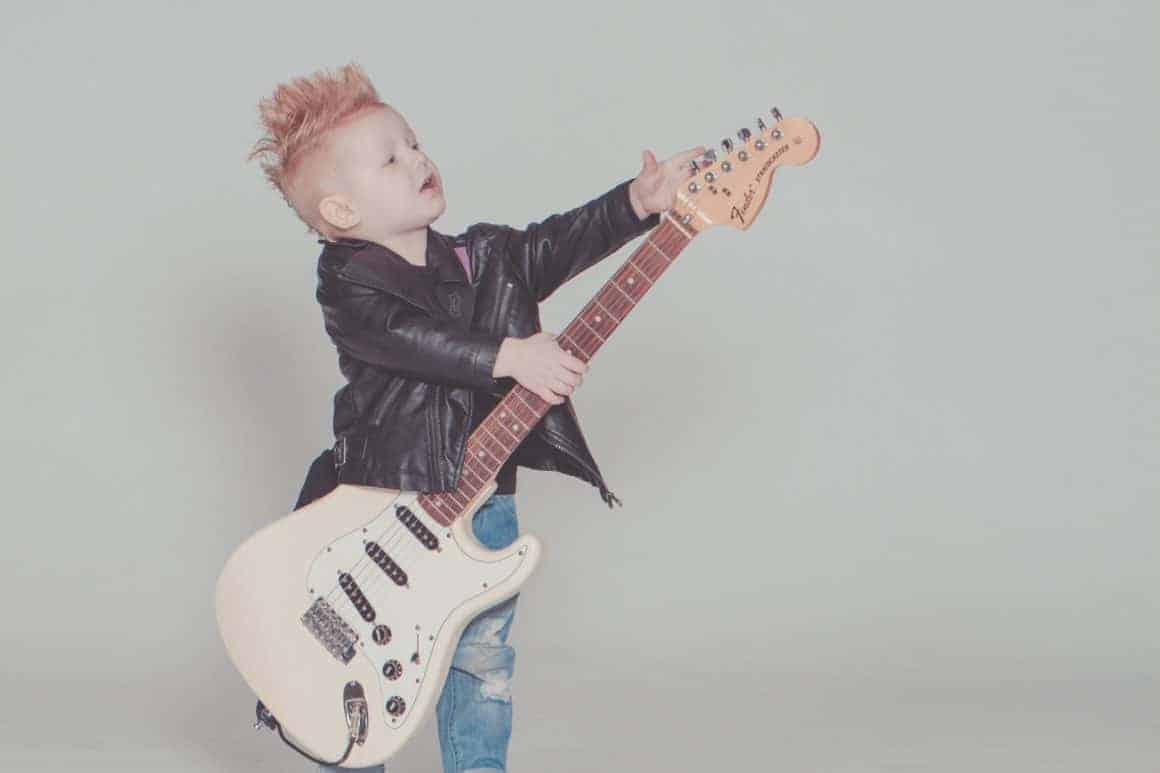Music has been called the universal language. It enriches our lives in numerous ways and keeps our brains happy. Since music is so beneficial to our overall well being, you should introduce music into your children’s lives from a young age. And if they’re ready to graduate from casual listener to musician, you may be wondering how to find the best musical instrument for your child.

When selecting a musical instrument, consider not only your child’s interests but their size and age as well. Here’s what you need to know about finding musical instruments for your children and keeping them motivated to play.
The Benefits of a Musical Education
Scientists have determined that playing an instrument positively impacts our brain health, but it also helps us in numerous other ways. By learning to play an instrument, your child will be able to hone his or her fine motor skills and become more mentally alert over time. Musicians have also demonstrated quicker auditory and tactile reaction times than individuals who don’t play an instrument.
As for its therapeutic properties, music was played to WWI soldiers to help them deal with combat-related emotional trauma. Music has been used as a modern therapy device ever since. Children with anxiety or those who have experienced a traumatic life event may find that playing an instrument helps keep their emotions balanced. Music has even been used as a way to improve the behaviour of “at-risk” students.
Choosing Among Various Musical Instruments
But playing an instrument should be fun as well as emotionally rewarding, so you need to find an instrument that “fits” your child on a number of levels. You should ensure that the chosen instrument is a good match for your child’s interest level, age, and size.
Musical professionals recommend that you start with the instruments that sound pleasing to your child’s ear, and narrow the choices down from there. When your child has demonstrated an interest in a particular instrument, it may be easier to keep them engaged and practising over the long-term.
Don’t let your child’s first choice be the ultimate deciding factor when it comes to finding the best instrument for their needs, however. They may have the idea in their head that a certain instrument, such as a saxophone, bass, or violin, is “cooler” than other instruments. That type of bias can lead to the wrong instrument choice and an unhappy child when it comes time to practice.
Size and Age Considerations
Your child’s age should be taken in to account when you’re choosing their first musical instrument. Young musicians under the age of 6 would do best with a violin or keyboard, as those instruments provide a solid musical foundation. What’s more, violins and keyboards come in various sizes to accommodate small hands.
Instrument size is an important factor as well. If your child has trouble hitting keys, reaching strings, or blowing into a mouthpiece, he or she is likely to get frustrated during practice time. Always make sure your child’s chosen instrument is appropriate for their body size. Guitars and larger brass instruments such as tubas and trombones may be better suited for middle schoolers and older kids.
If you have a high schooler who’s just starting out on a musical education journey, you have even more options. Perhaps they’re interested in percussion instruments or even music production, which is its own field altogether. Music producers utilize a variety of tools and techniques to create certain sounds and bring those sounds together, with production equipment such as mixers and drum modules.
Helping Your Kids Learn to Enjoy Practicing
Once you’ve worked with your child to select the right instrument for him or her, your next step is to encourage the daily practice of that instrument. While this can be difficult, especially the younger your child is, there are several ways you can go about encouraging a daily practice time.
First, be consistent. Determine a set time every day for music practice and stick to that time. Ideally, music practice should happen around homework time so that your child associates music practice with other consistent activities.
Let them start each practice with a warm-up, such as scales, rather than a full or challenging piece of music. That way, they won’t get frustrated early in their practice.
Consider setting up a rewards system regarding music practice. Offer a weekly incentive to completing music practice every day, such as a toy or favourite treat. Conversely, take away privileges such as phone use or video game time if they fail to practice during the set time.
Final Thoughts
Learning a musical instrument can help your child be successful, both academically and emotionally. Get them started off right by choosing the best musical instrument for their unique needs and interests. Help them learn to practice regularly by being consistent and offering incentives. With just a small amount of time and patience on your part and hard work on theirs, your child can build a musical foundation that lasts a lifetime.

